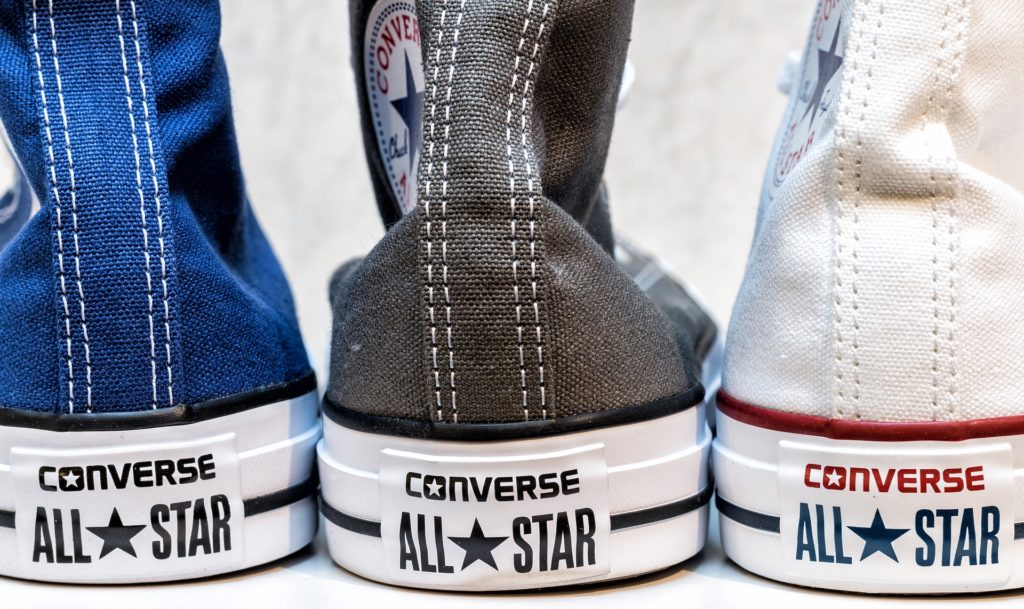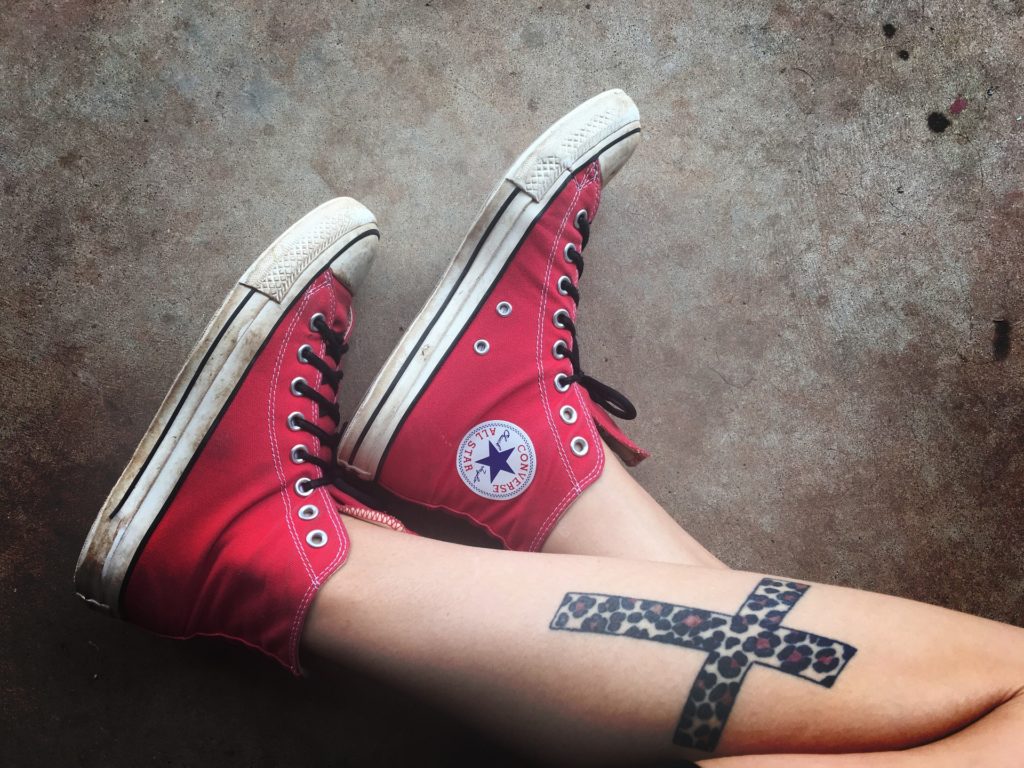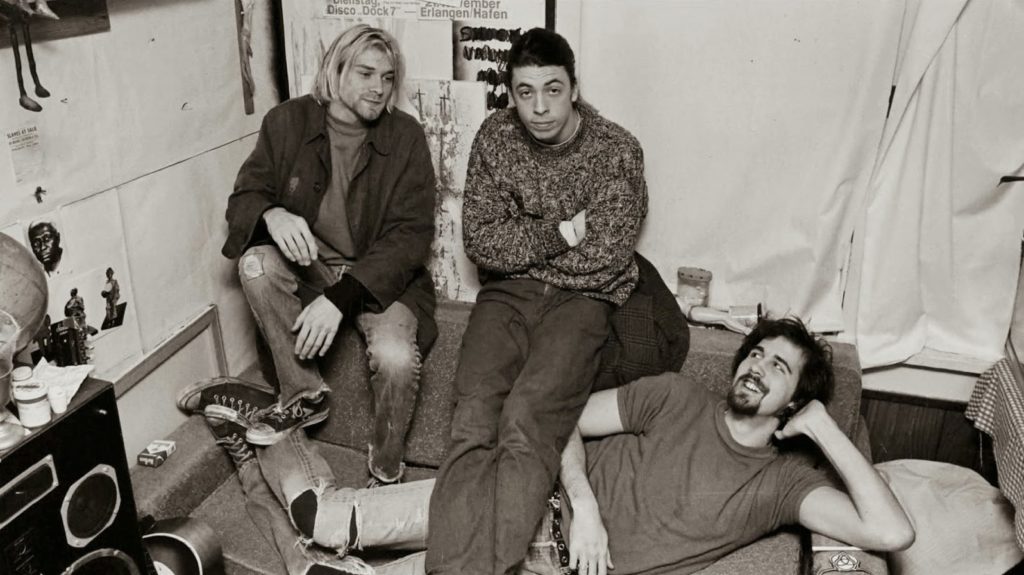Although it’s now known as a casual weekend shoe, older millennials know the truth: The Chuck Taylor was made for moshing, late night outs getting drunk in some dive bar watching your friends shred a guitar, running from the police after you commit yet another misdemeanor.
Ahh, good times.
The Chuck Taylor’s, officially the Converse All-Star, has a unique place in pop culture, mostly because of how ubiquitous it is across various subcultures, from sneakerheads and sports fans, to graffiti artists, and of course, the punk scene. It’s as American as Apple Pie and Baseball, despite being a product of a Canadian sport (more on that later). In a recent study, a staggering 60% of the entire population of the country has stated owning at least one pair of All-Stars in their lifetime. Even today, it is still the highest selling sneaker in history, bar none.
Check out our comparative article: vans vs converse.

Its place in punk rock history, of course, is probably the best documented, from The Ramones and Nirvana, to Taking Back Sunday and Dashboard Confessional; it’s the footwear of choice for anti-establishment, angst, and youthful indiscretions, a true testament to punk’s use of corporate irony and turning their products into a weapon against the system itself.
But beyond its ideological meaning, Chuck Taylor’s were popular with punk rockers for the same reason it was popular with basketball players, hip-hop artists, and sneaker heads: Converse shoes are comfortable; they were built for athletes to play their sport in the most relaxed way possible, after all. And what’s good for the hard court should be good enough for gigs.
With a storied past and a bright future, Converse All-Stars, or ‘Chucks’ as fans call it, are more than just a pair of shoes: they’re a lifestyle.
But Who IS Chuck Taylor?
Despite being a household name in the sneaker world, many people are still unaware of who exactly Chuck Taylor is, which is a shame, considering he was the one who basically created the shoe we all know and love today.
Charles “Chuck” Taylor was a semi-professional basketball player in the early 20th century. Debuting for the now-defunct Columbus Commercials on March 19, 1919, Chuck Taylor led a fairly mediocre basketball career, with almost no records of his semi-professional games. By 1920, just a mere year after his semi-professional debut, Chuck Taylor was already being traded from team to team. It seemed that the young Chuck Taylor would be forgotten by history soon enough.
All that would change, of course, when he started working for Converse.
Back in 1917, the Converse shoe company had already begun manufacturing one of the world’s first shoes dedicated to basketball players. The Converse Non-Skids were developed in 1917 specifically for use in basketball courts. It had a canvas top and a rubber sole, and was basically an early forerunner prototype for the All-Star.
After a disappointing 11 seasons in semi-professional and professional basketball, Chuck Taylor was hired by Bob Pletz, a huge sports fan and Converse employee. Bob signed Chuck Taylor as a salesman. However, this is where Chuck Taylor started to shine: within a few months, he was instrumental in redesigning the Non-skids, creating changes that added flexibility and support for basketball players. The company loved the redesign so much, they added his name to the star-shaped logo (which also served as an added layer of protection for the ankle) and the Chuck Taylor All-Stars were born.
The All-Star for All-Stars
To help promote the Converse All Stars to both basketball players and the general public, Chuck Taylor organized basketball clinics in various high schools, community gyms, YMCA’s, and colleges across the country. During these clinics, Chuck Taylor would teach basketball basics and fundamentals, with professional basketball players showing these concepts to people first-hand. This was one of the first instances of basketball clinics being held anywhere in the country and was instrumental in promoting not just the Converse shoes, but basketball in general.

Because of these clinics, numerous basketball players were soon wearing the All-Stars regularly, becoming popular with professional, semi-professional, college, and high school basketball players. By 1936, the Converse Chuck Taylor All-Stars was chosen as the official shoe of the Olympics, continuing to be so until 1968. It was so popular that the U.S. Armed Forces also used the All-Stars as the official athletic shoe for training.
As early as the 1950’s, Converse’s Chuck Taylor All-Stars had become a household name, with athletes from different sports using it as a standard shoe for all levels. By 1960, Converse had a virtual monopoly on the basketball shoe market; 70-80% of the athletic shoe industry was captured by Converse, specifically with the Chuck Taylor All-Stars.
By the mid-60’s, 90% of basketball players, from Wilt Chamberlain and Jerry West to Bailey Howell and Bob Pettit, wore the All-Stars to all their games.
It was an athlete’s dream shoe: the All-Stars by Converse were comfortable enough for players to use on the court, but versatile enough that they could also be worn outside. It is also for these reasons that the shoe became popular with an entirely different and emerging subculture.
An Instant Punk Classic
By the end of the 60’s and the beginning of the 70’s, the whole punk subculture had started forming and fermenting, led by bands such as the Sex Pistols and The Ramones. The punks concerned their lifestyle and their music around one thing: going against the “Establishment”, violently rejecting Capitalism in all its forms, and going against the grain of “polite” society in every turn.

In music, punk ideology centered on rejecting the long, multi-minute, ego-centric, complex guitar solo driven, rock songs of the 70’s, opting instead for short, jarring, and simple chords played fast and loose. In fashion, punk brought to the fore the idea of DIY-ing your wardrobe as a show of rejecting society’s customs.
It is in this vein that The Ramones first started wearing Chuck Taylors regularly. In his mind, Johnny Ramone saw it as a way to show disdain over “proper” clothing, as sneakers were only supposed to be worn in the gymnasium or in training. By wearing it in concerts, photo shoots, and practically wearing them out (so that’s where it started!), he was showing his rejection of society’s dictates. Thanks to The Ramones, the Converse All-Stars became ubiquitous with the English Punk scene, with famous rockers like Joe Strummer, Sid Vicious, and even the “Queen of Punk” Vivienne Westwood sporting Chucks wherever they went.
Despite being chic, Chucks somehow occupied a precarious position between pop culture icon and subculture corporate irony. Hardcore punk legend Henry Rollins summed it up perfectly when he spoke about creating a utilitarian approach to punk fashion:
“‘Getting dressed up means wearing a black t-shirt and some really basic dark pants … fuck clothes. The more time you spend worrying about clothes, the less time you have to grab life by the balls. You ever see a cheetah obsess over scarves and pocket squares? No. You see a cheetah bolt 70 miles an hour to take down a gazelle and shred it to fucking pieces. Be the cheetah.’

Considered to be more volatile, violent, and politically subversive compared the English Punk scene, the American hardcore punk subculture tried to distance itself from what they perceived to be the shock-value excess of punk by adopting a more utilitarian aesthetic, usually by combining simple black shirts with jeans and boots. However, even the hardcore punks couldn’t resist adding the Chuck Taylor’s to their wardrobe, with many hardcore punk aficionados praising the All-Star’s versatility and comfort, perfect for both running from the cops and moshing.
By the 90’s, even Grunge kids, known for their cheap but durable aesthetic, had adopted the Chuck Taylor’s as their own, with Kurt Cobain famously wearing a pair in multiple gigs across the country (as a morbid aside, he was wearing a pair of Chucks on the night he died).
After almost 100 years (a century!), the Converse “Chuck Taylor” All-Stars still remains a pop icon, a household name, a punk shoe, basketball sneakers, and many more. With the Chuck II’s release in 2015, the All-Star cements itself even further as a versatile, comfortable, and flexible shoe for generations of rockers and athletes to come.









